Sometimes, when trying to find out what is causing our anxiety, we come to realize that actually, it’s all the tiny things we do in our daily habits that are triggering it: the mindless habits that cause anxiety. Discover these habits and learn strategies to break free from them for a more peaceful mind.
The mindless habits cause anxiety
- Neglecting yourself. When there are long periods when you have no routine, taking care of yourself can be a difficult task. Putting yourself first and resting whenever it is necessary can go a long way. Check out our Anxiety Self-Care Checklist if you want self-care ideas you can do in your daily life to take better care of yourself.
- Not showering regularly, or not taking care of your hygiene. For those of us who went through very rough periods in our lives, we know that even tasks such as taking a shower can be especially hard.
- Not having a balanced diet. Yes, I know you have heard this one so many times before. But did you know that most people in the United States do not get enough magnesium in their diets? Magnesium helps to regulate the nervous system. And also, there is evidence (1) that links low magnesium levels to higher levels of anxiety. So getting all the important minerals and vitamins is important for your nervous system health.
- Dehydration. Dehydration can contribute to anxiety, according to research (2). Check out our ultimate guide to drinking more water. Some tips include:
- Always carry a water bottle with you.
- Set reminders.
- Drink a glass of water when you wake up.
- Download an app to drink more water.
- Skipping meals. Those who skipped meals were more likely to have anxiety and depression, according to this study (3). If you are skipping meals because you feel unable to eat, you should probably contact a doctor. However, here are a few tips:
- Plan your meals.
- Try to have regular (healthy) snacks.
- Set a timer on your phone, or schedule time for meals even if you are not hungry. You can do this in your agenda or your Google calendar.
- If cooking is too hard, buy prepared meals or make very simple meals.
- Not going to the doctor. You might be skipping going to that checkup with your dentist because you are anxious about your dental health. However, postponing it can give you more anxiety and more scared of the appointment. Also, taking care of your body is important to take care of your mind.
- Drinking too much caffeine. If you are especially sensitive, even drinking a little caffeine can make you anxious. Anxiety is indeed a side effect of caffeine, according to this study (4).
- A messy home environment. This can be a vicious cycle, as often being able to have enough energy to clean our home can be hard when our mental health is suffering. Check out our guide “Tidy House Tidy Mind” with actionable steps to become more tidy. However, making little efforts to be more tidy can help us to declutter our minds. For example, cleaning our sheets and making our bed will make you feel so much better when you come home later.
- Not getting enough sleep. You can always try to improve your sleep hygiene to get better quality sleep. Here are some tips.
- Stress is very obvious but when you are stressed in general you start to feel much more vulnerable to the effects of anxiety. Some stress management techniques include:
- Meditation
- Physical activity
- Journaling
- Not getting out of the house all day. It can be tempting to stay inside all day because you are anxious. However, even though staying in to relax and recover can be very beneficial for you, doing this multiple days in a row will make you lose your routine. Try to go out, even if it is just for a little walk, and get some sunlight and vitamin D.
- Endless scrolling. Increased use of social media was linked to increased symptoms of anxiety, according to research (5). Possible solutions include:
- Uninstalling the apps
- Setting a time limit on the apps
- Think about how do you feel after being on social media. How does it impact you?
- Not knowing how to say no. Learn to say no to meetings you don’t want to go, to extra responsibilities. Learning to say no is going to help your stress levels in the long term.
- Keeping too many taps open. It can make you feel overwhelmed.
- Toxic people. Even though some toxic people are unavoidable in our lives, there are some that are not. Mae an effort to stay away from people who make you feel bad.
- Having a bad posture. According to a study (6), having a good posture decreased anxiety symptoms. Check out our article on the relationship between anxiety and posture.
How to break free of those habits
When creating new habits, it is important to create a system that works for you. My book recommendation is Atomic habits, a book that teaches everything there is to know about habits.
Step 1: Assess your current habits
This is the first step to take actionable steps: record your good and bad habits. Say them aloud as you are doing them, “I am taking my phone and scrolling Instagram before going to sleep”, or write them down.
To record your habits, you can try to record them using different methods:
- Paper.
- With your phone.
- Use Notion templates to record your habits (many are free).

- Using apps such as Habitica. This app is super useful, however, it can get tiring to have to record all the habits all the time, as recording the habit feels as hard as changing the habit itself.
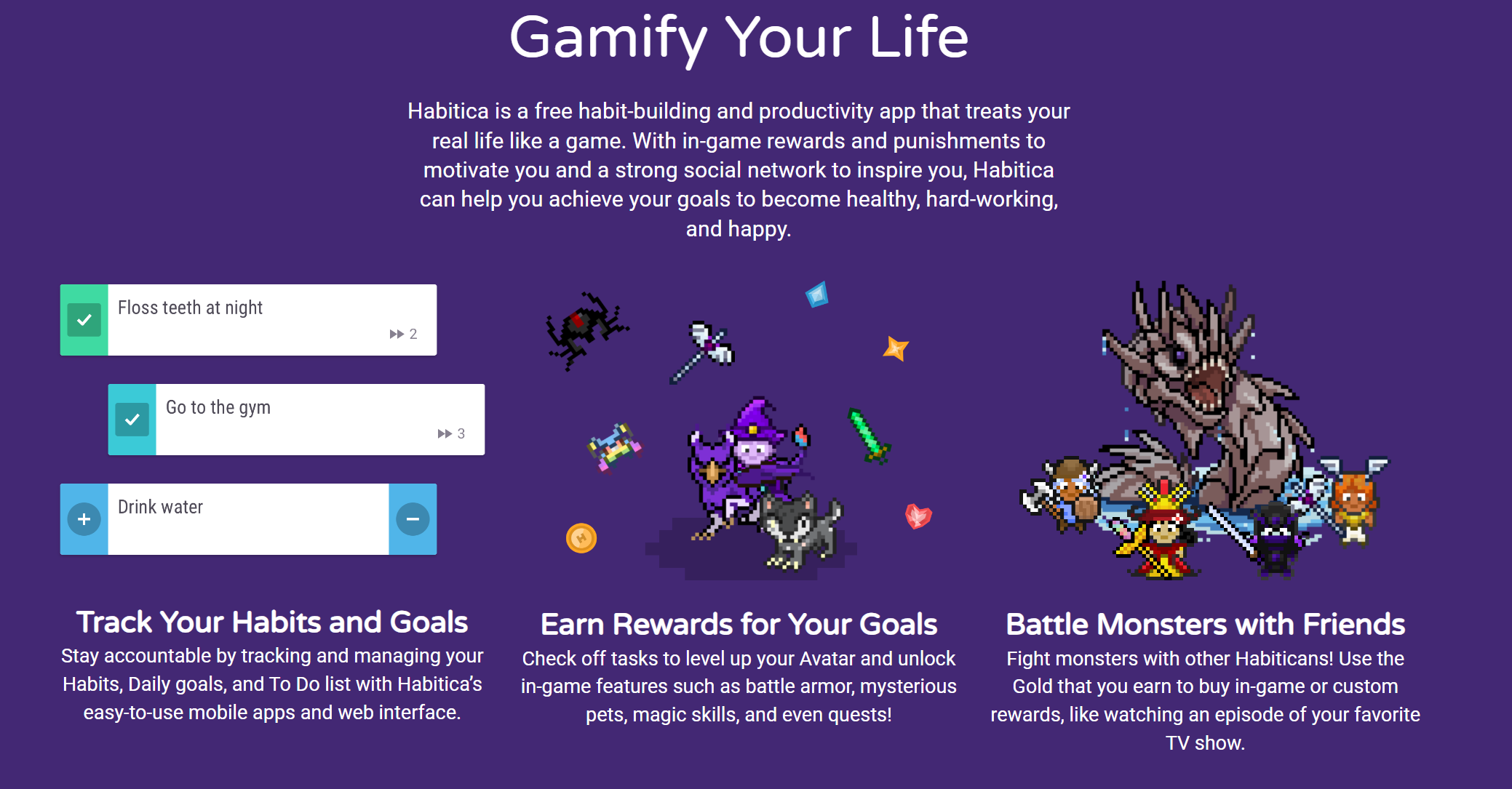
It is important to become aware of what are our good and bad habits in order to improve them.
Step 2: Brainstorm ideas
Brainstorm ideas on how to create an effective system.
To brainstorm the ideas, you can use the following technique:
- Create a Miro board. It is a free web application that allows you to create a board with stick it notes.
- Brainstorm ideas, using a sticky note for each idea. Here, you are aiming for quantity and not for quality. The ideas don’t even have to be realistic, as you will filter them later on.
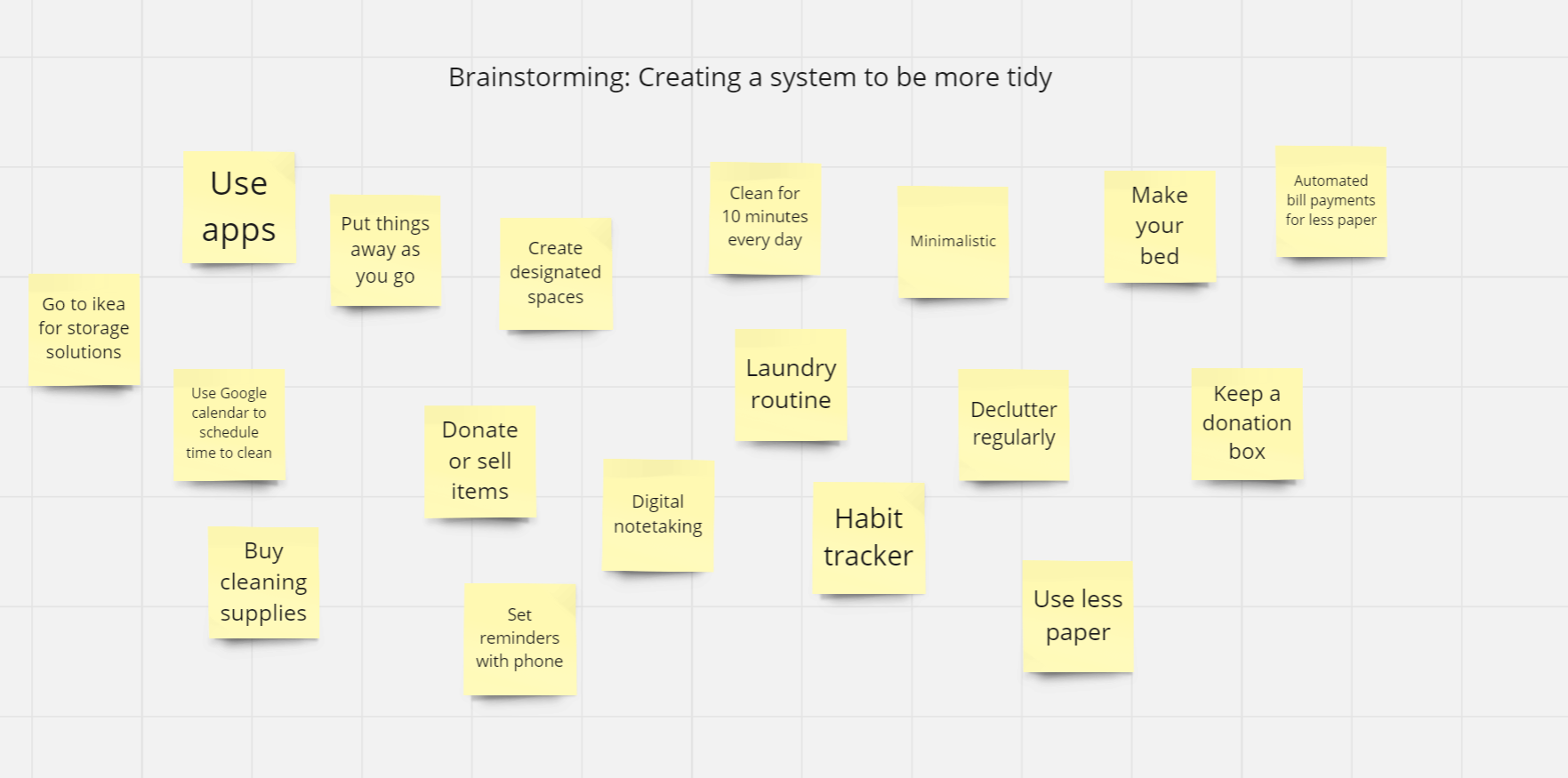
- For example, how can you change your environment to make this habit easier? (Or make a bad habit harder?) How can you avoid relapse?
- Use ChatGPT to help you brainstorm some more ideas. For example, “Give me 50 ideas on how to be more tidy”.
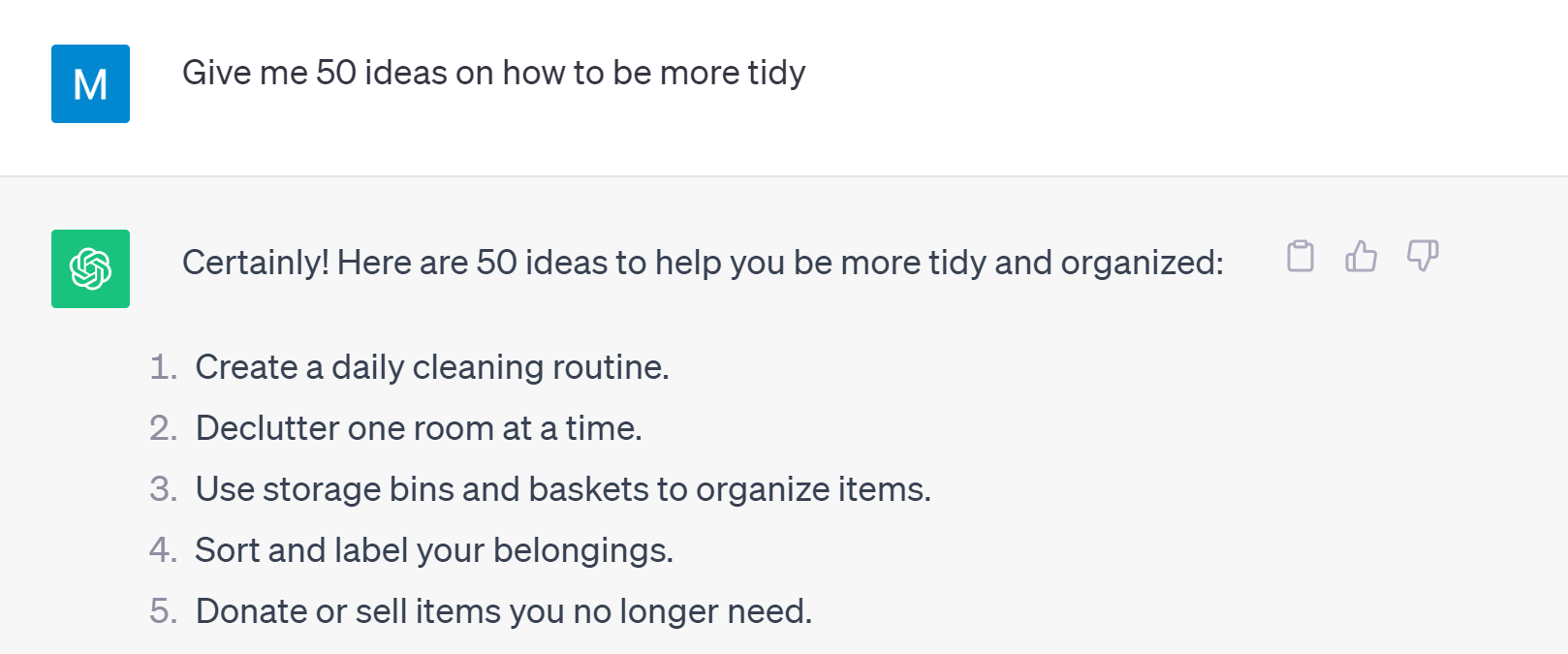
- Regroup the ideas by putting the sticky notes together, or using different colors.
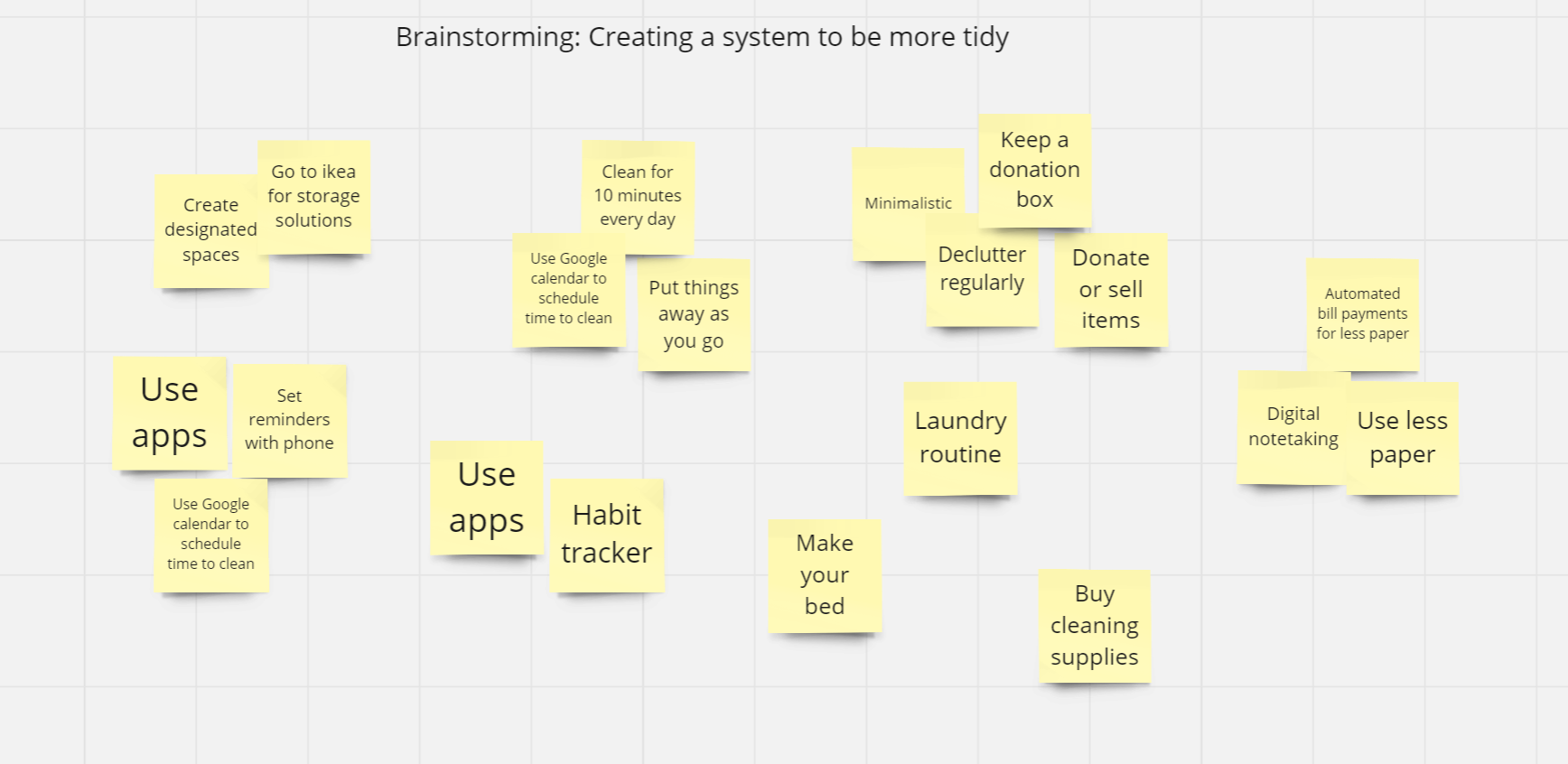
Step 3: Create your system
Create the system, using the ideas that you previously brainstormed.
- Select some groups of ideas you brainstormed before, and filter them out: Are they realistic? Can I actually do this? Does this solution fit my budget and schedule? Is this too much work?
- Try to select two or three ideas, and make a plan to actually implement them. What do you have to buy? What do you have to do? When? How?
Step 4: Refine and update your systems
Through trial and error, see what works for you and what doesn’t. Update your systems, and brainstorm again some ideas if you need to.
Some additional tips to help you break the mindless habits that cause anxiety:
- Use the 5 second rule. If taking a shower feels very difficult right now, try this: The moment you have an instinct to act on a goal you must 5-4-3-2-1 and physically move or your brain will stop you.
- Start small, do not try to change all your habits at once. Even just changing one can really bring a difference, specially if right now you don’t have much energy or if your mental health is suffering. So try to focus on changing one or two habits at a time.
- Habit building is first done through an identity change. Identity makes our habits, and our habits make our identity
- Try keeping some structure. If you are doing nothing all day, it can be hard to do even little self-care tasks. Try to establish some routine, and join some activities. Even having one thing a week can give you some structure, like doing one sports class.
- Find an accountability partner to stay motivated and who will help you track your progress.
Anxiety Habit Worksheet
Anxiety Habit Worksheet – Notion template
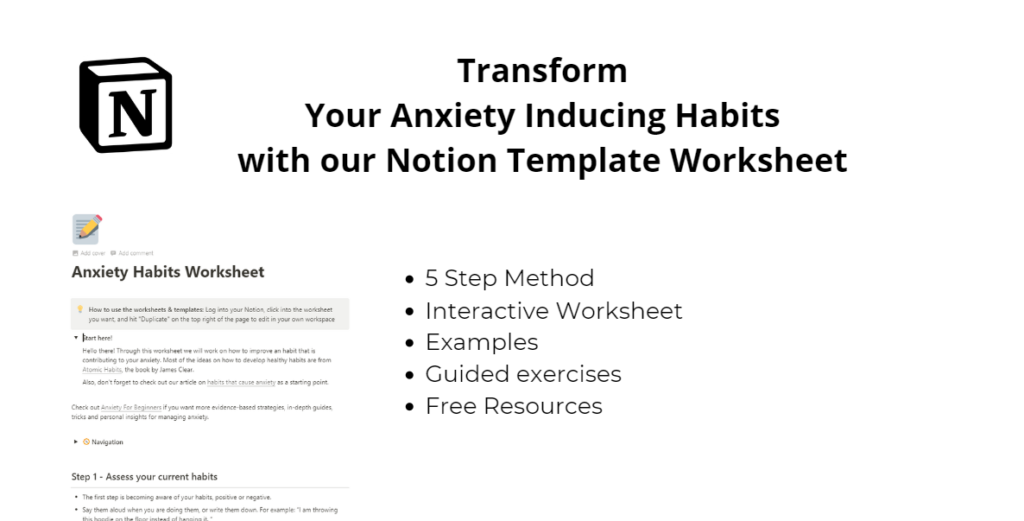
Supercharge Your Habit Transformation! 🚀
Ready to conquer those anxiety-inducing habits? Our “Anxiety Habits Worksheet” is here to help! 🌟
🔍 What’s Inside:
📌 Step 1 – Assess Your Habits: Begin your journey by understanding your current habits, both the good and the not-so-good. 📝
🚦 Step 2 – Brainstorm Ideas: Brainstorm new strategies to improve your habits and create better systems for the long-term.
🛠️ Step 3 – Create Your System: Turn your ideas into action: Build a robust system and a concrete plan to implement your habit transformation.
📊 Step 4 – Keep Track: Tracking your progress is key. We’ve got you covered with habit tracking tools and tips. Stay accountable and watch the transformation happen. 📈
🔄 Step 5 – Refine Your Systems: Embrace the power of continuous improvement. Refine your systems and upgrade your habits for lasting change. 🔄
Ready to take the first step? Get started today and improve your habits now! 🎯
Additional resources
There are some mindless habits that cause anxiety. However, there is a way to break free from them: create and refine systems for better habits. Start small, with one or two habits, and start making small changes in your life to be able to better deal with anxiety.
Here are some additional resources to help you tackle the mindless habits that cause anxiety:
- Atomic habits, by James Clear
- Anxiety Manager Notion template
- Sleep hygiene tips
- Anxiety Self-Care Checklist
- Some extra tips on breaking off bad habits
- The ultimate guide to drinking more water
- Noting meditation
- Journaling prompts for anxiety
- Miro board – to help you brainstorm
- Habit tracking templates Notion
- Tidy house Tidy Mind – our guide to becoming more tidy
Sources
(1) Medical News Today. (n.d.). Why do we need magnesium? Medical News Today. https://www.medicalnewstoday.com/articles/286839#recommended-daily-intake
(2) Haghighatdoost, F., Feizi, A., Esmaillzadeh, A., Rashidi-Pourfard, N., Hassanzadeh Keshteli, A., Roohafza, H., & Adibi, P. (2018). Drinking plain water is associated with decreased risk of depression and anxiety in adults: Results from a large cross-sectional study. World Journal of Psychiatry, 8(3), 88–96. https://doi.org/10.5498/wjp.v8.i3.88
(3) Anderson, L. (2020). Skipping Meals Is Associated With Symptoms of Anxiety and Depression in U.S. Older Adults. Innovations in Aging, 4(Suppl 1), 515. https://doi.org/10.1093/geroni/igaa057.1663
(4) Reissig, C. J., Strain, E. C., & Griffiths, R. R. (2009). Caffeinated energy drinks–a growing problem. Drug and Alcohol Dependence, 99(1-3), 1-10. https://doi.org/10.1016/j.drugalcdep.2008.08.001
(5) Satici, S. A., Tekin, E. G., Deniz, M. E., & Satici, B. (2023). Doomscrolling Scale: its Association with Personality Traits, Psychological Distress, Social Media Use, and Wellbeing. Applied Research in Quality of Life, 18(2), 833–847. https://doi.org/10.1007/s11482-022-10110-7
(6) Weineck, F., Schultchen, D., Hauke, G., Messner, M., & Pollatos, O. (2020). Using bodily postures to reduce anxiety and improve interoception: A comparison between powerful and neutral poses. PLoS One, 15(12), e0242578. https://doi.org/10.1371/journal.pone.0242578

Leave a Reply